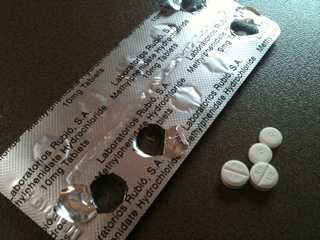After seeing a few tweets and posts surrounding ADHD and the stereotypical way they have been described, I feel compelled to “right” what I see as a wrong.
ADHD is a condition that affects the brain. There is a chemical called dopamine in the brain. In ADHD children, that chemical is lacking or low. It causes the brain to misread signals and signs, and makes it difficult for children to calm their brains long enough to take in much of what is going on around them.
It also leads to increased frustration as many of the children who suffer are normal or high intelligence, but simply can’t focus long enough on something to be able to fully grasp the correct meaning.
Loud noises can irritate and distract them, to such a level that they are in pain. Their brains can often suffer with short term memory loss, but once something has passed into the long term memory, it is usually there to stay.
Children with ADHD on its own tend to be socially excluded on many levels. They can make inappropriate responses as their brain is just getting to the answer of the first question someone asked, when the asker is now on Q3.
They often lack the ability to think before they speak or act.
Women could relate more if they could imagine their hormones all out of whack – all the time, and multiply that effect many times.
Far too often, I see, hear, or read about people who think it is an excuse for bad behaviour.
They often also seem to think that Ritalin is a drug that calms down bad behaviour.
Those of you who have read this far are either interested, or keen to find out more. Well done for wanting to understand of a condition that is hyped out for the wrong reasons.
To finish, I am going to take the Ritalin debate. People who don’t know, seem to think it is prescribed to “calm down” badly behaved children.
That is completely the wrong impression. For ADHD children (and adults) and with other disabilities with similar brain issues, the medicine replaces the dopamine that is missing in the brain, and appears to calm children down. It doesn’t. What it does, is like insulin to a diabetic and replaces what the body is missing so that you see them on the same level as their non ADHD peers.
Give Ritalin to a child who is not ADHD, and with a normal dopamine level, and it will actually make that child hyperactive – the drug would be adding extra to their normal level of dopamine. Think giving a normal child massive levels of sugar.
If you give an ADHD child too much Ritalin, then it will also hype them out. It can be a case of trial and error to hit on the right dose, as each child who suffers can have a different level of dopamine missing.
I hope I have done my bit to dispel some of the myths running around about ADHD, and if you have any questions, feel free to get in touch. People using ADHD as an excuse to run a child down should think about how much damage that does to real families coping with a real medical issue.
So there you have it.


I just googled this saying and this thread came up I'm neither Scottish or a mum, I'm a Geordie and…
As an 88 year old American, after reading the article(s) and all of the comments, I say "nothing is now…
Been stretching for this song nobody I know knows it I sing it every year my gran use to sing…